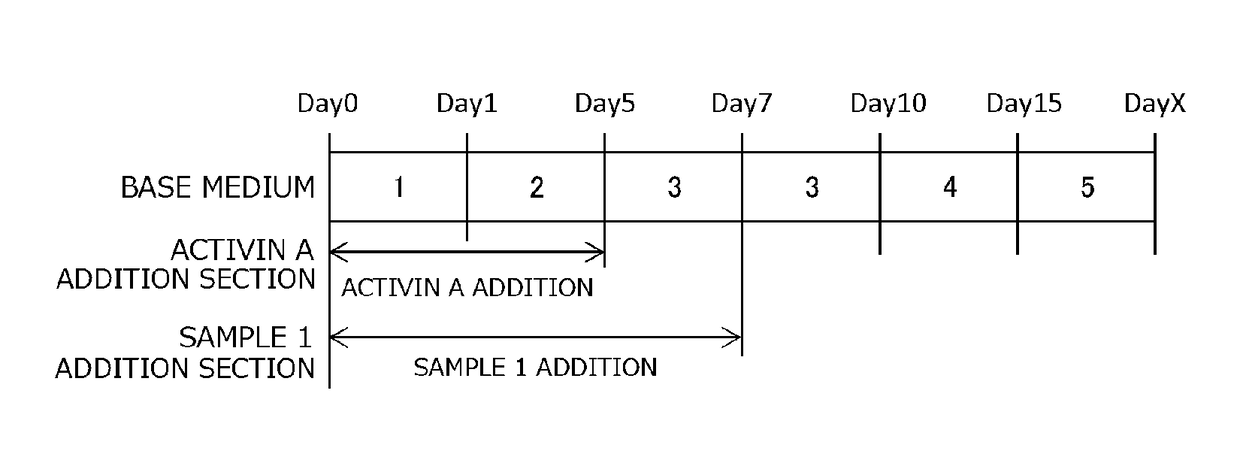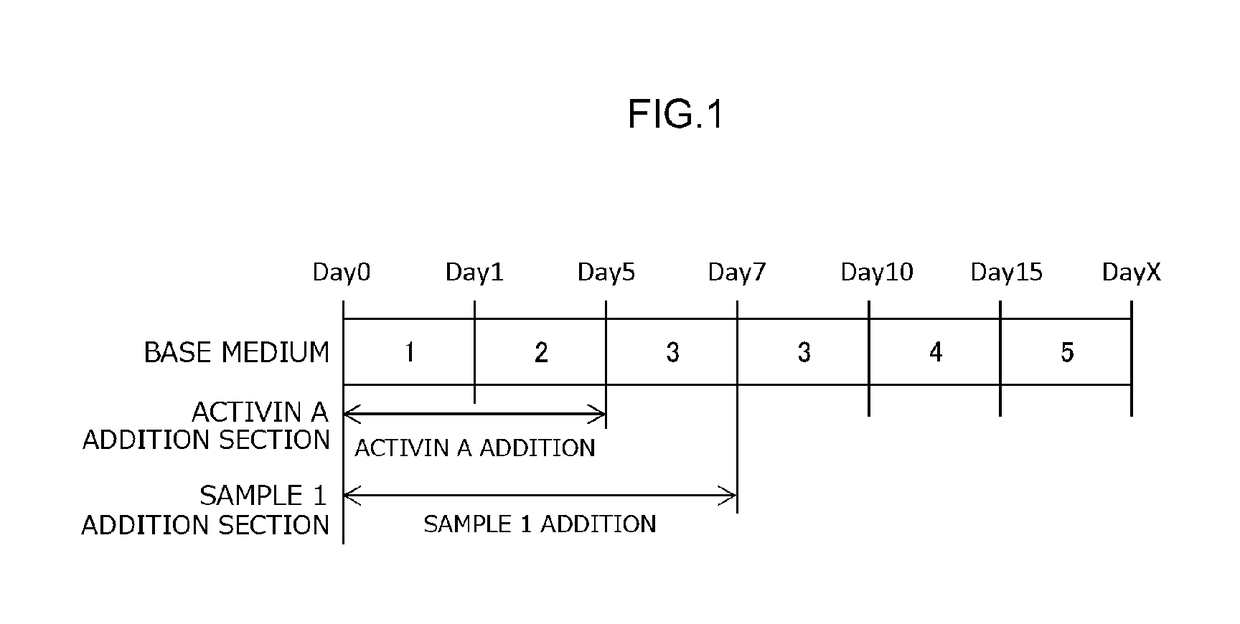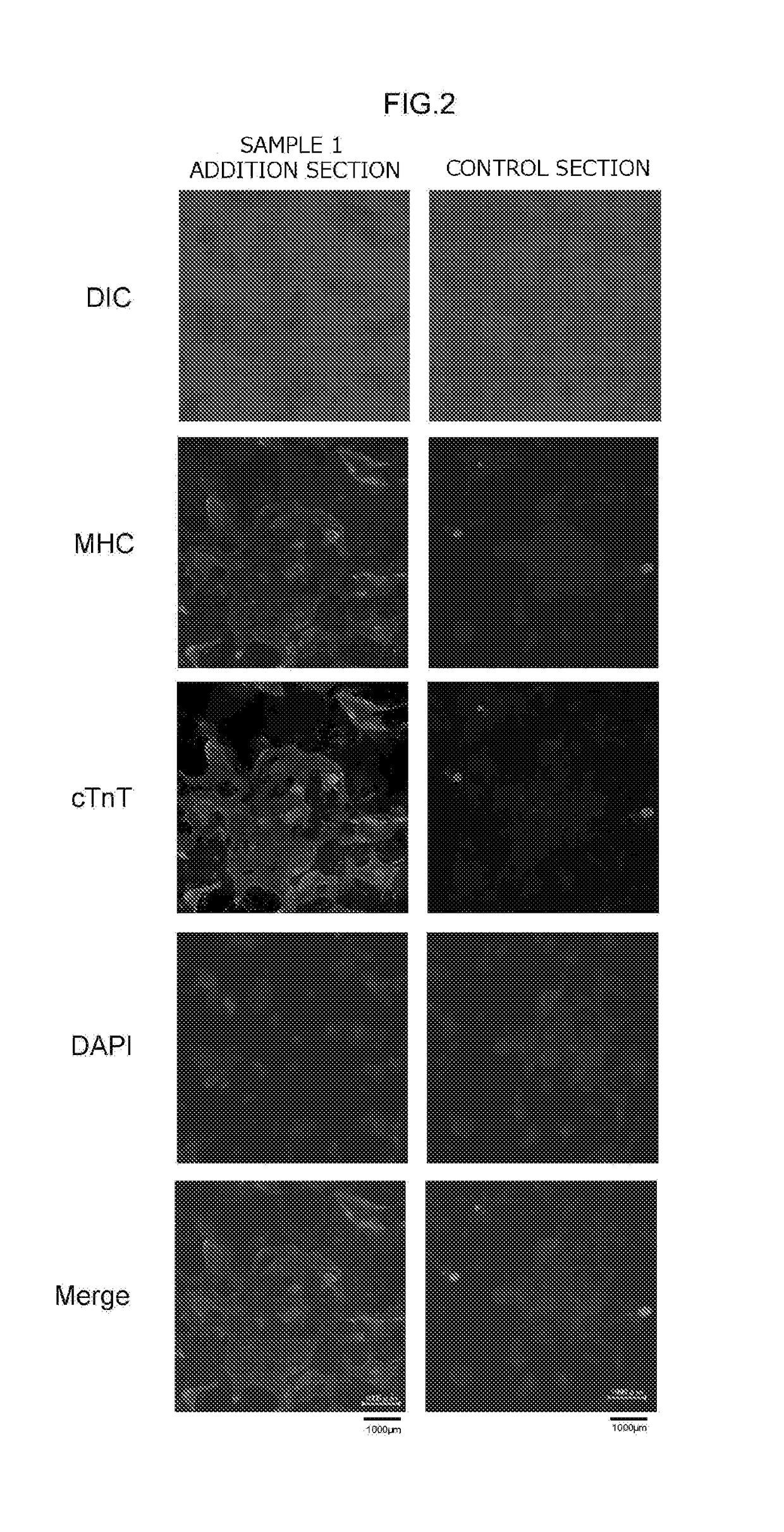Method for producing myocardial cells using synthetic peptide
a technology of synthetic peptides and myocardial cells, which is applied in the direction of genetically modified cells, fused cells, skeletal/connective tissue cells, etc., can solve the problems of low degree of maturation, low efficiency of differentiation into myocardial cells, and insufficient function of differentiation-induced myocardial cells, etc., to achieve short chain length, easy artificial production, and efficient production
- Summary
- Abstract
- Description
- Claims
- Application Information
AI Technical Summary
Benefits of technology
Problems solved by technology
Method used
Image
Examples
example 1
ynthesis
[0220]A synthetic peptide comprising the amino acid sequence given in SEQ ID NO:26 was produced using the peptide synthesizer described below. This synthetic peptide is designated sample 1 in the description that follows. The carboxyl group (—COOH) on the C-terminal amino acid in this synthetic peptide is amidated (—CONH2).
[0221]The sample 1 peptide was synthesized by a solid-phase synthesis method (Fmoc method) in accordance with the manual using a commercial peptide synthesizer (Intavis AG). The mode of use of the peptide synthesizer is itself not a characteristic feature of the present invention and its detail description has therefore been omitted.
[0222]The synthesized peptide was dissolved in a solvent prepared by mixing 1 volume of DMSO with 1 volume of ethanol (DMSO / EtOH=1 / 1) to prepare a stock solution.
example 2
n of Myocardial Cells
[0223]Pluripotent stem cells were induced to myocardial cells (production of myocardial cells) using the myocardial cell differentiation-inducing synthetic peptide obtained in Example 1 (sample 1). Specifically, pluripotent stem cells were induced to myocardial cells (production of myocardial cells) by using the myocardial cell differentiation-inducing synthetic peptide obtained in Example 1 (sample 1) in place of activin A in the method for inducing the differentiation of pluripotent stem cells into hepatocytes. The method described in Non Patent Literature 3 was adopted for the method for inducing the differentiation of pluripotent stem cells into hepatocytes. iPS cells of human origin (clone designation: 201B7, source: Takahashi K et al., Cell, 131, 861-872 (2007)) were used for the test cells. These iPS cells were supplied by the Center for iPS Cell Research and Application of Kyoto University.
[0224]Culture media with the compositions given below were first ...
example 3
n of the State of Expression of Myocardial Cell Marker Genes
[0244]To check the state of expression of myocardial cell marker genes, cytoimmunostaining (fluorescent immunostaining) of proteins that are the gene products of myocardial marker genes was carried out on the cells in each of the test sections at the 16th day after the start of main culture. The expression of the following as myocardial marker genes was checked: myosin heavy chain (MHC), cardiac Troponin T (cTnT), tropomyosin (TM), and connexin 43 (Cx43).
[0245]First, the cells in each test section were subjected to a fixing treatment, a permeabilization treatment, and a blocking treatment. This fixing treatment, permeabilization treatment, and blocking treatment were carried out using a commercial kit (Image-iT Fixation / Permeabilization Kit, Life Technologies Corporation) in accordance with the manual provided with the kit.
[0246]Specifically, the culture medium was first removed from the culture vessel (12-well plate) for t...
PUM
| Property | Measurement | Unit |
|---|---|---|
| concentration | aaaaa | aaaaa |
| width | aaaaa | aaaaa |
| permeable | aaaaa | aaaaa |
Abstract
Description
Claims
Application Information
 Login to View More
Login to View More - R&D
- Intellectual Property
- Life Sciences
- Materials
- Tech Scout
- Unparalleled Data Quality
- Higher Quality Content
- 60% Fewer Hallucinations
Browse by: Latest US Patents, China's latest patents, Technical Efficacy Thesaurus, Application Domain, Technology Topic, Popular Technical Reports.
© 2025 PatSnap. All rights reserved.Legal|Privacy policy|Modern Slavery Act Transparency Statement|Sitemap|About US| Contact US: help@patsnap.com



